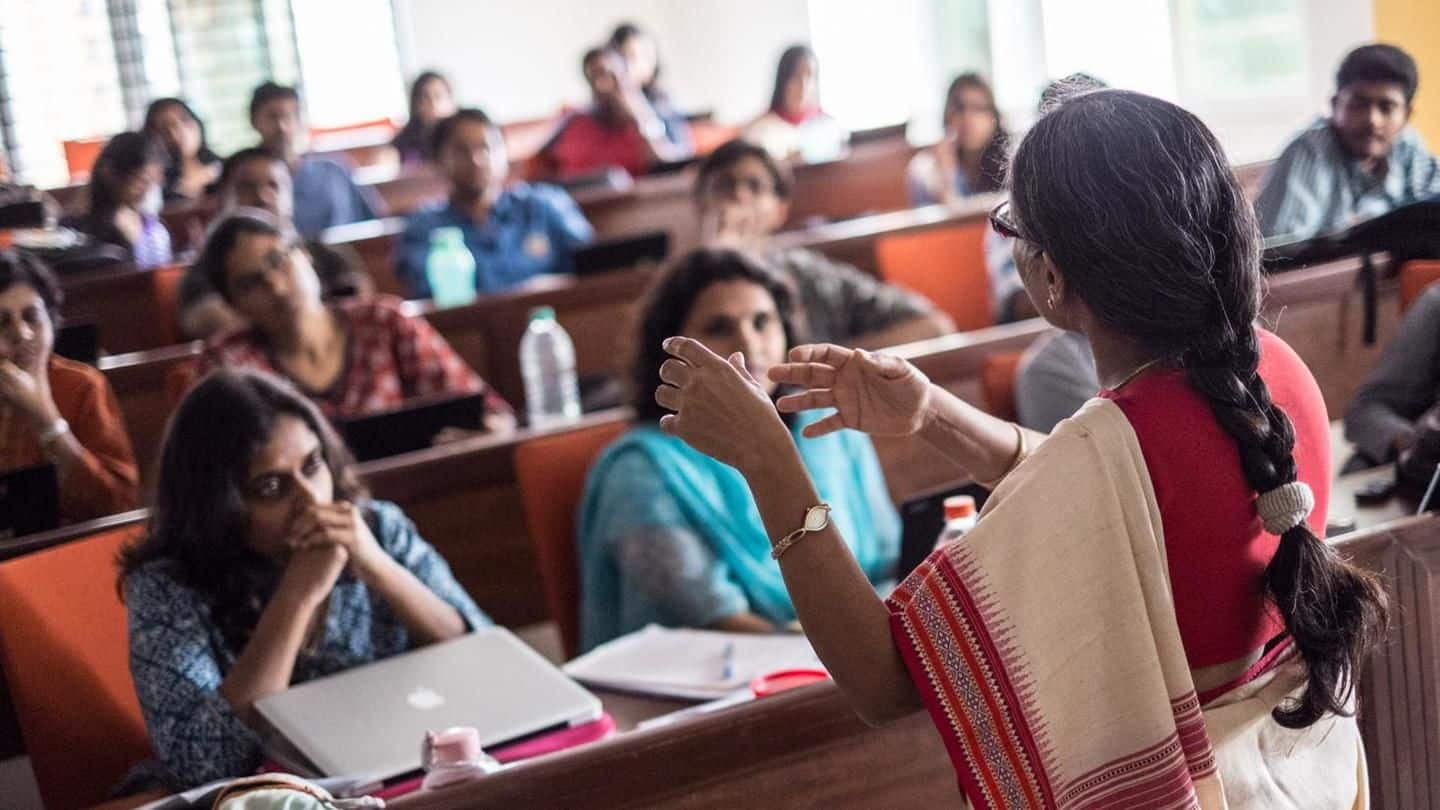
Engineering students might soon have open-book exams
What's the story
The Indian education system focuses excessively on marks, and performance in final exams often determines "intelligent" and "dull" students. However, most exams test rote-learning skills, and many toppers succeed by simply memorizing the syllabus, eventually forgetting it immediately afterwards and thus rendering "education" pointless. The AICTE is now considering an overhaul by introducing open-book exams in engineering courses to test students' understanding of concepts.
Definition
What are open-book exams?
In open-book exams, students are allowed to take books/notes inside the exam hall and refer to them while writing the paper. Questions test application of concepts, and often there's no direct answer in the book which can be simply copied. "(Since) they're less demanding on memory and hence less stressful, questions can emphasize on problem-solving and higher-order thinking," a report by a panel said.
Caution
Conducting open-book exams needs much care
Experts have welcomed the move, but cautioned that conduction of open-book exams needs extreme care. "Exam reforms cannot be done in isolation; it has to go with teaching reforms," said Pradipta Banerji, Professor, IIT-Bombay. The report also warned that "the courses or the curriculum areas that are best suited to an open-book exam are to be carefully chosen."
Bloom's taxonomy
Using Bloom's taxonomy for well-balanced papers
The panel has also suggested using Bloom's taxonomy to devise balanced question papers to test different capabilities. Bloom's taxonomy gives proportionate importance to comprehension, application, analysis, synthesis and evaluation (apart from knowledge). The panel recommends no more than 40% weightage should be given to knowledge-oriented questions. "The weightage for different cognitive levels in question papers can also vary from course to course."
Status
AICTE, HRD to decide on examination reform panel's recommendation
Among other recommendations of the four-member panel mulling examination reforms are "a wide range of assessment methods (term papers, open-ended problem-solving assignments, course/lab project rubrics, and portfolios)" and internship experiences. The AICTE and HRD Ministry are examining the suggestions made by the committee formed in January. They will then decide on implementation. These recommendations will be applicable to engineering and technical institutes under AICTE.